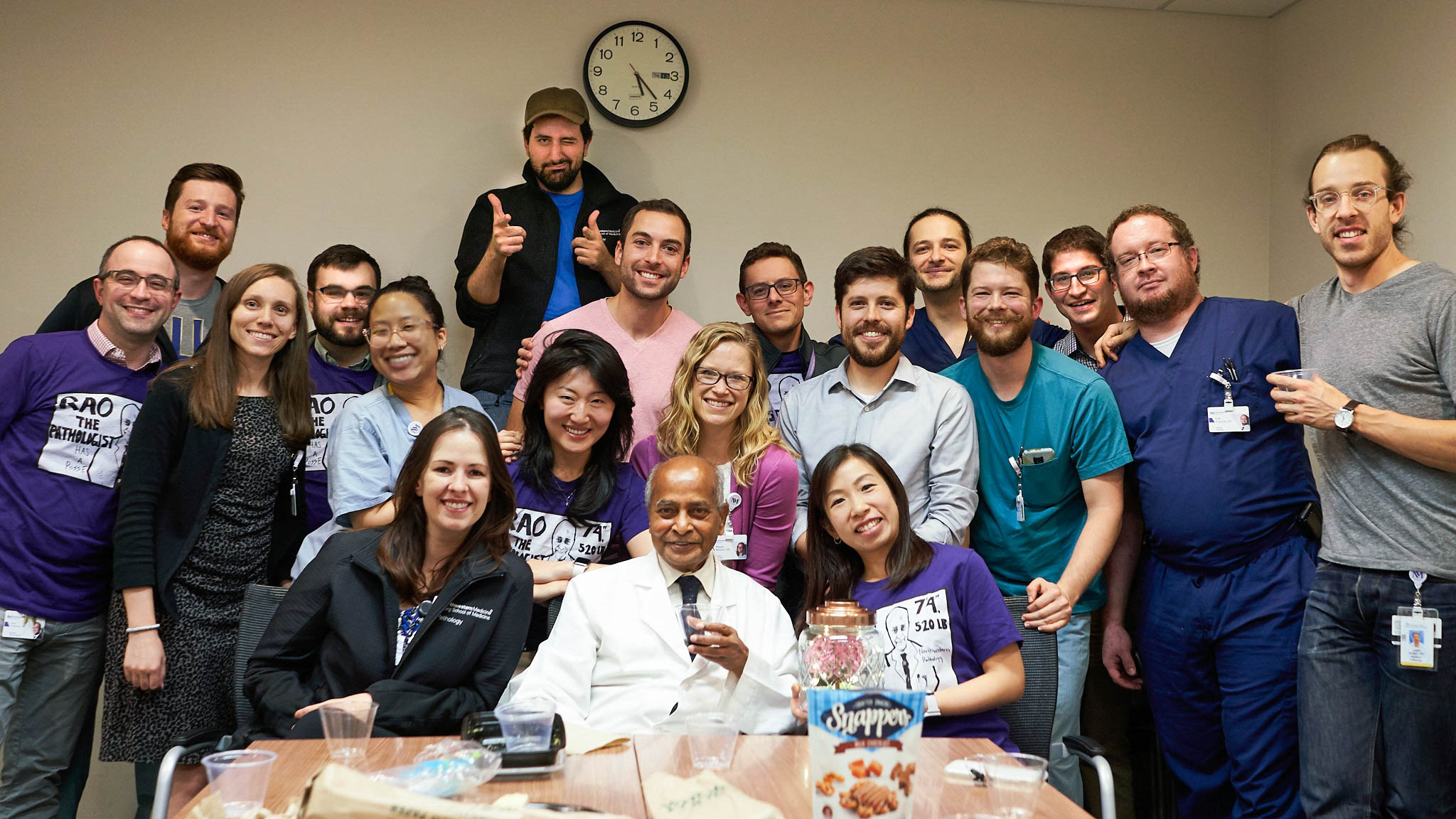Clinical Curriculum
Strong clinical training is at the foundation of our residency program in both anatomic and clinical pathology. Our approach to resident education combines both a structured didactic curriculum as well as practical clinical experience in all aspects of the field. Successful completion of the residency program and all requirements therein confers full eligibility for the American Board of Pathology primary certification exam.
Educational Conferences
Our daily 8 a.m. educational conference follows a two-year curriculum which covers diverse aspects of anatomic pathology, clinical pathology, and lab/practice management. The program strives to make educational sessions as interactive as possible. Interspersed with didactic sessions are unknown slide seminars led by faculty and senior residents that provide an opportunity for more practical exposure to clinical material, as well as question-based sessions covering practice- and board-relevant material.
Journal club is held several times over the course of the year, exposing residents to developing topics within the field and giving trainees and faculty an opportunity to critically review and discuss study design. Many conferences, including CP and autopsy conferences, have a resident-led, case-based component. Additional conferences include a Quality Forum, in which PGY3 residents present their individual Quality Improvement projects, sessions from Risk Management, and sessions on many other practice-relevant topics. A sample weekly lecture schedule is provided below.
| Monday | Tuesday | Wednesday | Thursday | Friday | |
|---|---|---|---|---|---|
| CP Call Issues Review CP Didactic LectureCP Resident Cases |
Frozen Section Unknowns Resident-led Unknowns AP Didactics |
AP or CP Didactics Journal Club Autopsy Conference Surgical Pathology Gross Conference |
Surgical Pathology Unknowns | AP or CP Didactics |
A unique feature of our program is the 5pm slide conference, held Tuesday through Thursday. Many faculty spanning multiple specialties enthusiastically volunteer for these sessions, which provide an informal extra educational opportunity to discuss both common and uncommon entities. On Fridays, there are special 4:30pm sessions led by senior residents. This unique component of the program is emblematic of our commitment to resident education.
Practical Exposure to Cases
Graduated responsibility and dedicated preview time are integral to resident education in our department. On rotations in both anatomic and clinical pathology, residents are expected to independently preview their cases and write them up accordingly with provisional diagnoses and suggested ancillary studies before reviewing them with the faculty.
Residents assume responsibility for their cases on all rotations. In surgical pathology, residents follow their cases from the gross bench to sign out. The majority of sign out takes place with subspecialists. On clinical pathology rotations, the experience is structured around both bench work as well as didactics. Residents work closely with faculty to address questions from clinicians and any issues that arise within the lab, as well as work up individual cases requiring physician interpretation.
Collaborative Insight and Management
Starting in the second half of the PGY-1 year of training, residents (under attending supervision) present at the many interdisciplinary tumor boards throughout Northwestern Memorial Hospital. Interaction with medical oncologists, surgeons, radiation oncologists and radiologists in these venues provides valuable perspective and clinical insight to compliment the training that residents receive within our department.
Quality and management training are also emphasized in our curriculum. In addition to reviewing lab management topics with faculty, residents complete the Lab Management University series of online modules produced by the American Society of Clinical Pathology. Residents also complete quality improvement projects during their PGY-3 year and present their findings to the department.
